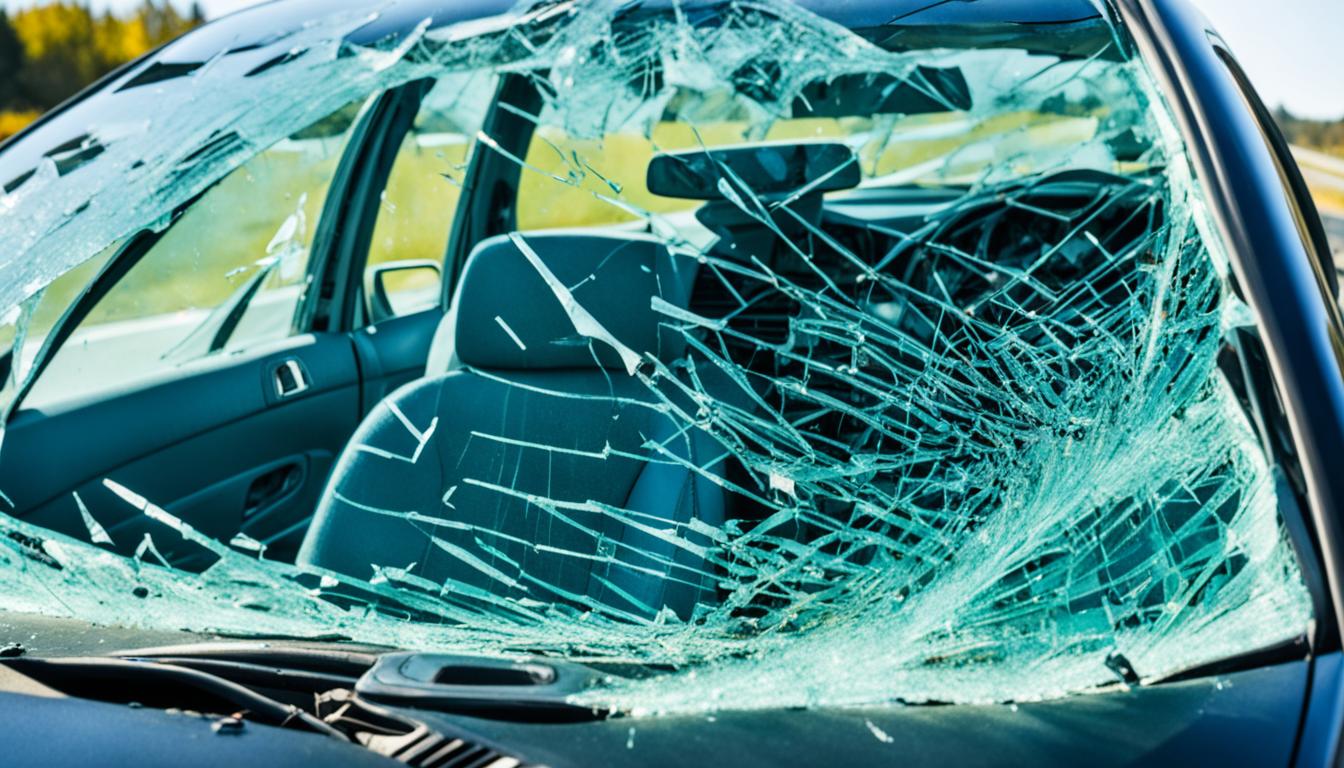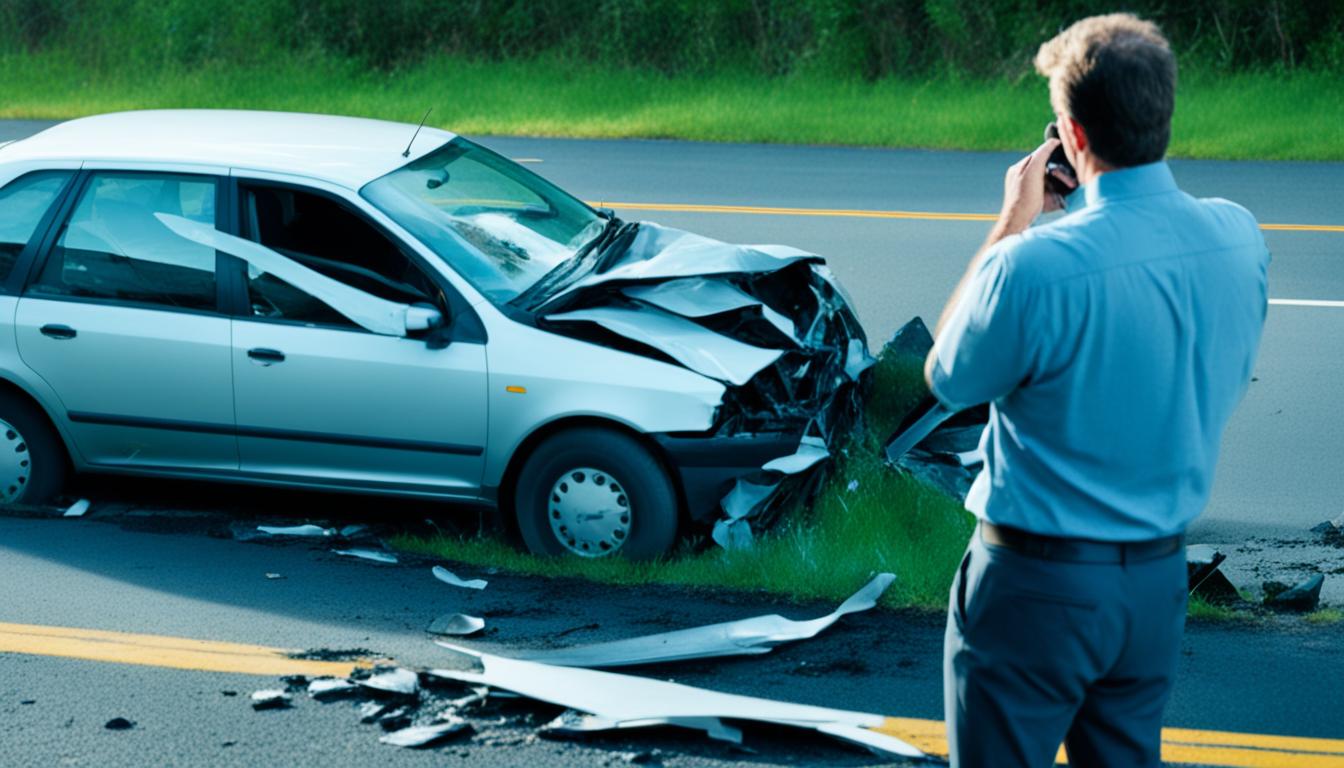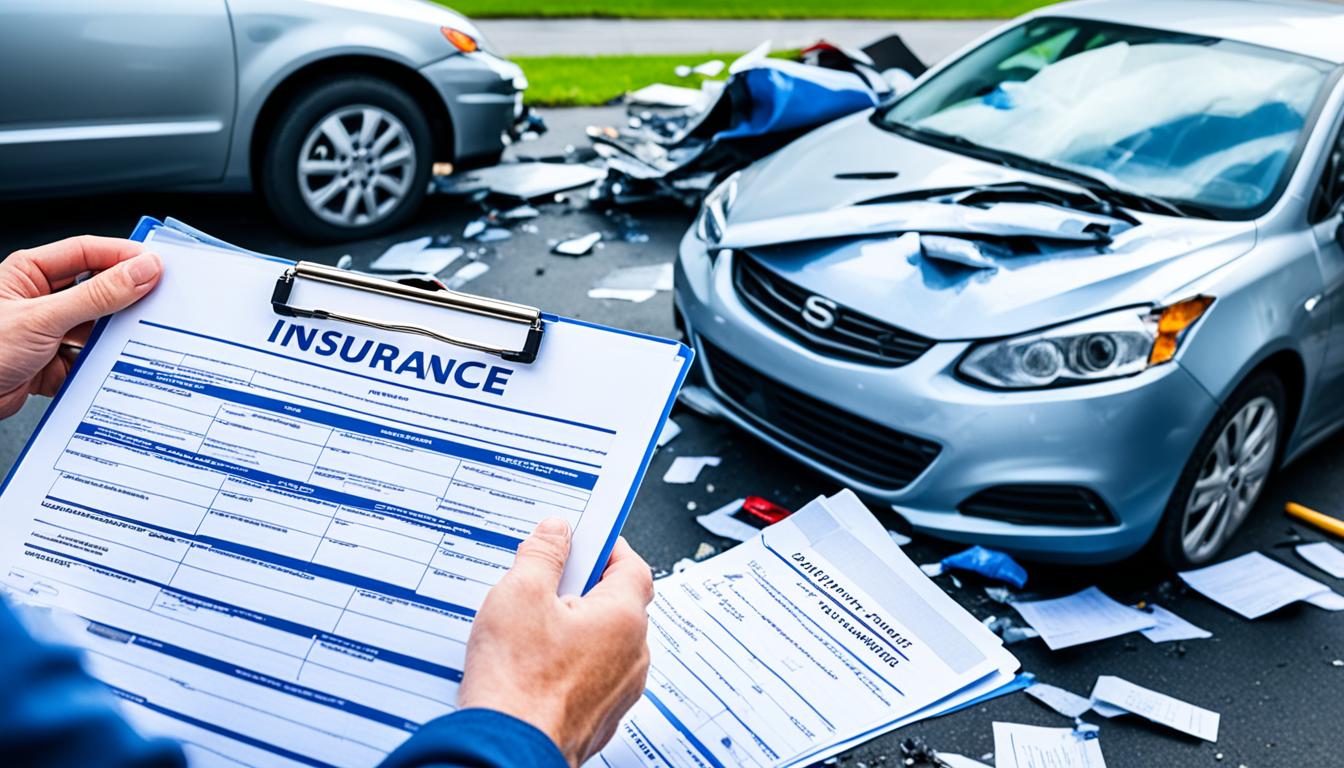After a car crash, figuring out auto insurance legal advice is key, especially in places like Georgia where the blame matters. This event disrupts your life and brings financial worries. To get fair pay, you must face insurance debates and study complex policies closely. A skilled car accident lawyer helps you through this mess by explaining liability and insurance claims.
Those hurt in a car accident often battle with insurance firms. Early settlement offers are just the start of a chess game to save the company’s money. Good accident records are your armor. Knowing about personal injury laws lets you fight smart. Being alert for insurance tricks is crucial to not lose what you deserve.
Good legal advice is like a guiding light, showing the way to full compensation. It covers everything, from car damages to the unseen emotional toll.
Key Takeaways
- Grasping your rights in an at-fault state like Georgia is essential for car accident claims.
- An awareness of insurance disputes and the tactics used can prevent premature settlements.
- Understand the importance of thorough accident documentation as it strengthens your case.
- Seeking auto insurance legal advice can illuminate the path to a fair personal injury lawsuit settlement.
- Stay alert for insurance bad faith practices that can impact your compensation.
- Policy coverage knowledge is crucial for effective liability assessment in insurance settlements.
Understanding At-Fault Laws and Compensation Entitlement in Georgia
When it comes to car accidents in Georgia, knowing about at-fault laws is key. It directly impacts how insurance settlements turn out. We will look into how fault is determined, your legal rights, and how to handle insurance issues.
Assessing Fault and Liability After a Car Accident
Finding who’s at fault in Georgia relies on OCGA §51-1-1. This is very important. It decides how your claim goes and what you can get back. To find the real cause, every detail of the accident must be carefully looked at.
Compensation Rights Under Georgia Law
- Medical expenses resulting from the accident
- Lost wages due to inability to work
- Costs for rental cars while vehicles are repaired
- Funds for vehicle repairs or replacement
- Compensation for pain and suffering endured
If you’re just a bit at fault, your compensation can be less. This is called comparative negligence. It stresses the need to prove your case well.
Challenging the Insurance Company’s Settlement Offers
At first, insurers might offer you less than you deserve. It’s important to fight these low settlements. Talk to a lawyer for help. They can make sure you get what’s fair.

Time is of the essence after an accident in Georgia. You have two years to start a claim. Waiting too long can hurt your chance of getting any money back. So, act fast after a crash.
Hopefully, this info makes it easier to understand how at-fault laws work in Georgia. It should help you know your rights better and make smart choices about your claim after a car wreck.
What to Do Immediately Following an Auto Accident
If you’re in a car accident, the first steps you take are key. Being quick and smart about what you do can make your claim smoother. The first moments after a crash are vital. They can make it easier to deal with your insurance later on.
Securing Accident Documentation
First, focus on getting everything on record correctly. This includes:
- Taking photos of the damage from different views.
- Noting any visible injuries on both you and others.
- Getting the names and contacts of any witnesses.
- Writing down road and weather conditions and anything that caused the accident.
All this makes your claim stronger and can speed up getting compensation. It’s all about having facts straight.
Dealing with Insurance Disputes
Sorting out insurance disagreements needs prep work and calmness:
- Never take the first settlement offer. It often won’t be enough.
- Keep a good record of your talks and letters with your insurer.
- Get advice from a lawyer who knows about insurance and how to negotiate.
Being careful with these steps could help you get a better outcome. It guides you through making your case strong.

Following these steps right after a car accident is key. It saves you from trouble later. You want to make sure your rights are protected.
Calculating Damages: Beyond the Physical Injuries
In a car accident, calculating damages looks at more than just the physical harm. It dives into the effects on victims’ lives. The process of personal injury lawsuits carefully reviews the costs. This includes not only immediate medical bills but also other kinds of losses.

The claims cover various expenses, like medical costs and impacts that you can’t touch. Let’s take a quick look at what’s important in the calculation of compensation:
- Medical Expense Reimbursement: Covers every medical cost, including immediate and ongoing treatment after the accident.
- Pain and Suffering Compensation: Involved more than physical pain, accounting for mental and emotional suffering.
- Income Loss: Considers money lost from being off work or having a lower income because of the accident.
“Navigating through personal injury lawsuits demands an understanding of both tangible and intangible losses, ensuring comprehensive settlements that truly reflect the multifaceted impact of the accident.”
Seeking expert legal advice is key to calculating damages correctly. It helps ensure victims get full compensation for their suffering. Good legal support makes certain that every part of a victim’s trauma gets due consideration.
‘Auto Insurance Legal Advice’: Maximizing Your Claim Post-Accident
After a car accident, getting the most from your insurance is key. Legal experts can help a lot. They understand how to use negotiation to make your insurance give you a fair amount.
Working with Legal Experts to Navigate Insurance Settlements
Legal experts do more than represent you. They fight for your rights with solid negotiation skills. This helps battle the insurance companies who often want to pay less.
This way, you’re more likely to get money that covers all your losses and any injuries.
Insurance Bad Faith and How to Respond
If you face problems from the insurance company like not getting paid or big delays, it’s tough. These actions are known as insurance bad faith. Knowing what to do is critical.
Legal experts can help you take the right legal steps, like suing the insurance company. This could lead to more money for their unfair practices.

Maximizing your insurance claims and dealing with insurance bad faith needs a smart plan and legal help. Having skilled legal experts on your side can change the game in your favor.
Protect Your Finances: Understanding Policy Coverage and Limits
After a car accident, understanding policy coverage is key to keeping your money safe. Insurance policies can be tough to understand. It’s important to know about insurance policy limits. This helps a lot when you’re dealing with property damage claims.

Usually, insurance covers damage up to the value of your car or the limit in your policy. Having the right financial protection is very important. If you’re not careful, fixing your car could cost more than its value. Then, the insurance might not pay, calling your car a total loss.
- Review your policy carefully: Check your insurance policy often to see any new rules.
- Understand the market value: Knowing what your car is worth helps you know if your coverage is good for you.
- Consult a legal advisor: Getting advice from a legal expert can clarify your policy’s complexities. They can tell you about any financial help you have.
Getting a good handle on these points helps you deal with property damage claims well. This makes sure you’re not stuck with big money troubles after an accident. It boosts your financial protection and helps you get all the benefits your policy has.
Your Legal Obligations and Rights in Auto Accident Liability Assessment
Knowing your legal obligations after an accident and auto accident rights is crucial. It affects how your liability is judged and your chances of getting compensation.
Right after a crash, you must tell the police what happened. This is key, especially if someone got hurt or the damage is serious. Not reporting it can make your situation harder, affecting your rights and chances of getting money back.
- Report the Accident: Make sure to call the police right away to document the accident. This is important for assessing your liability later.
- Document Everything: Take photos, get witness statements, and keep records of any medical visits.
- Notify Your Insurance: Let your insurance know as soon as possible to avoid claim problems later on.
It’s also key to understand your auto accident rights. One crucial right is the claims filing deadline. Missing this deadline, which varies by state, could mean no compensation for you.
“Acting on time in exercising your rights and fulfilling obligations can make your claim stronger,” say legal experts.
To handle liability assessment well, know about negligence and comparative fault concepts. Also, take part in the investigation. Make sure the facts support your case.
Finally, staying informed with legal advice is wise. A lawyer can help explain complex terms. This guidance is essential for knowing your rights and duties, and for making smart choices through your claim process.
- Legal Consultation: Talk to a lawyer for clear advice on dealing with auto accident claims.
- Regular Updates: Stay in touch with everyone involved in your claim. Make sure you’re doing what’s needed in time.
- Understand Your Rights: Knowing your rights protects you from unfair treatment, ensuring you get what you deserve.
To wrap up, being well-informed about your legal obligations after an accident and auto accident rights is key. It helps with the liability assessment and ensures you don’t miss the deadline for filing a claim, which is critical for compensation.
Conclusion
Getting through a car accident is tough, but getting fair settlements is a must. You need to protect your rights and use the law with help from professionals. This way, you can understand the details in policies and who’s at fault.
It’s crucial to record the accident well, know who is responsible, and grasp insurance rules. Don’t overlook these steps. Insurance companies often think about money first. But, your legal team is there to make sure you’re not forgotten.
The main aim is to move past the accident to healing, keeping your rights safe. It’s vital to get legal advice fast to know how to fight for what you deserve. Navigating through the legal process is tough, but the right help makes it clearer towards a just outcome.



